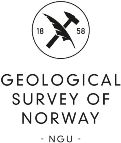
(Last updated: 19.11.2024)

|
Norsk versjon | ||||
| THE ORE DATABASE | |||||
| Occurence 3118 - 002 FAGERÅS | |||||
| (Object Id: 6639) (Last updated: 19.11.2024) |
|||||
|
|
| Location |
| County: | Østfold | Municipality: | Indre Østfold (3118) |
| Map 1:50000: | Askim (1914-2) | Map 1:250000: | Oslo |
| Coordinate system: | EU89-UTM Zone 32 |
| East: | 628318 m. | North: | 6615292 m. |
| Longitude: | 11.2772240 | Latitude: | 59.6559030 |
| Show on map |
|
|
| Resource |
| Resource Type: | Ferroalloys (Cr,Ni,Co,V,Mo,W) | Resource Subtype: | Nickel | |
| Element(s): | Ni Cu |
| Importance |
| Raw material meaning: | Little Importance (reg. 18.02.2015) |
| Resources and production |
| Activity: | Mining | Reserves: | ||
| Operating method: | Underground mining | Historical production: |
Mineralization |
| Era: | Proterozoic | Period: | Mesoproterozoic | |
| Genesis: | Orthomagmatic formation | Form: | ||
| Main texture: | Min. distribution: |
| Main grain size: | Main alteration: |
| Strike/Dip: | Direction: | |||
| Plunge: |
| Stratigraphic classification of host rock |
| Era: | Proterozoic | Period: | Mesoproterozoic |
| Province: | East Norwegian Basement Province | |
| Geotec.unit: | Østfold Complex | |
| Tectonic complex: | ||
| Igneous complex: |
| Group: | Formation: |
Information(s) in free text format |
| Free text |
| Fagerås grube er listet opp hos Foslie (1925). |
Bibliography: |
| From NGU's Reference Archive: |
| , 1940 |
| Aktenvermerk uber Nickelerz-Vorkommen in Smålenene. |
| ;Norges geologiske undersøkelse;FAGRAPPORT;Bergarkivet; No.BA 1585;2 pages |
| Abstract: | |
| Notatet gir opplysninger om nikkel-magnetkisforekomster i Smålenene, Spydeberg, Hobøl, Skiptvedt, Svendal, Rakkestad, Eidsberg, Trøgstad og Askim. |
| Foslie, Steinar , 1925 |
| Syd-Norges gruber og malmforekomster. |
| ;Norges geologiske undersøkelse;TIDSSKRIFTARTIKKEL;NGU; No.126;1-89 + ka pages |
| Abstract: | |
| On the map accompanying this paper all the mines and ore deposits of Southern Norway are collected for the first time.The material has been gathered from printed and unprinted sources, communications from mining engineers and geologists, and through personal visits. Included are all mines and ore deposits of former, present and future importance. Among the 1407 deposits on the map, there are furthermore included all of doubtful value and many which are quite unworkable, but of geological interest, or those which mark the distribution of ore bearing formations. For this reason it has been necessary to mark the deposits with signs of different size. The object is only to facilitate a comprehensive view of the map, and is not an effort of economic classification, which for most of them would be quite impossible. The sizes refer to the presumed importance of the ore deposit, and has nothing to do with the extent of the mining operations. Mines and deposits out of work during the period 1913-1923 have been separately marked (see the legend), also deposits which were formerly of much greater importance than now. For the smallest mines and deposits no distinction has been made in these respects. Among them are represented partly those, which are in reality unworkable, partly those which are little investigated. |
| The fact sheet was created on 07.01.2026 |
| Questions or comments regarding the fact sheet can be emailed to: ressursdatabaser@ngu.no |
| Copyright © 2026 Geological Survey of Norway |